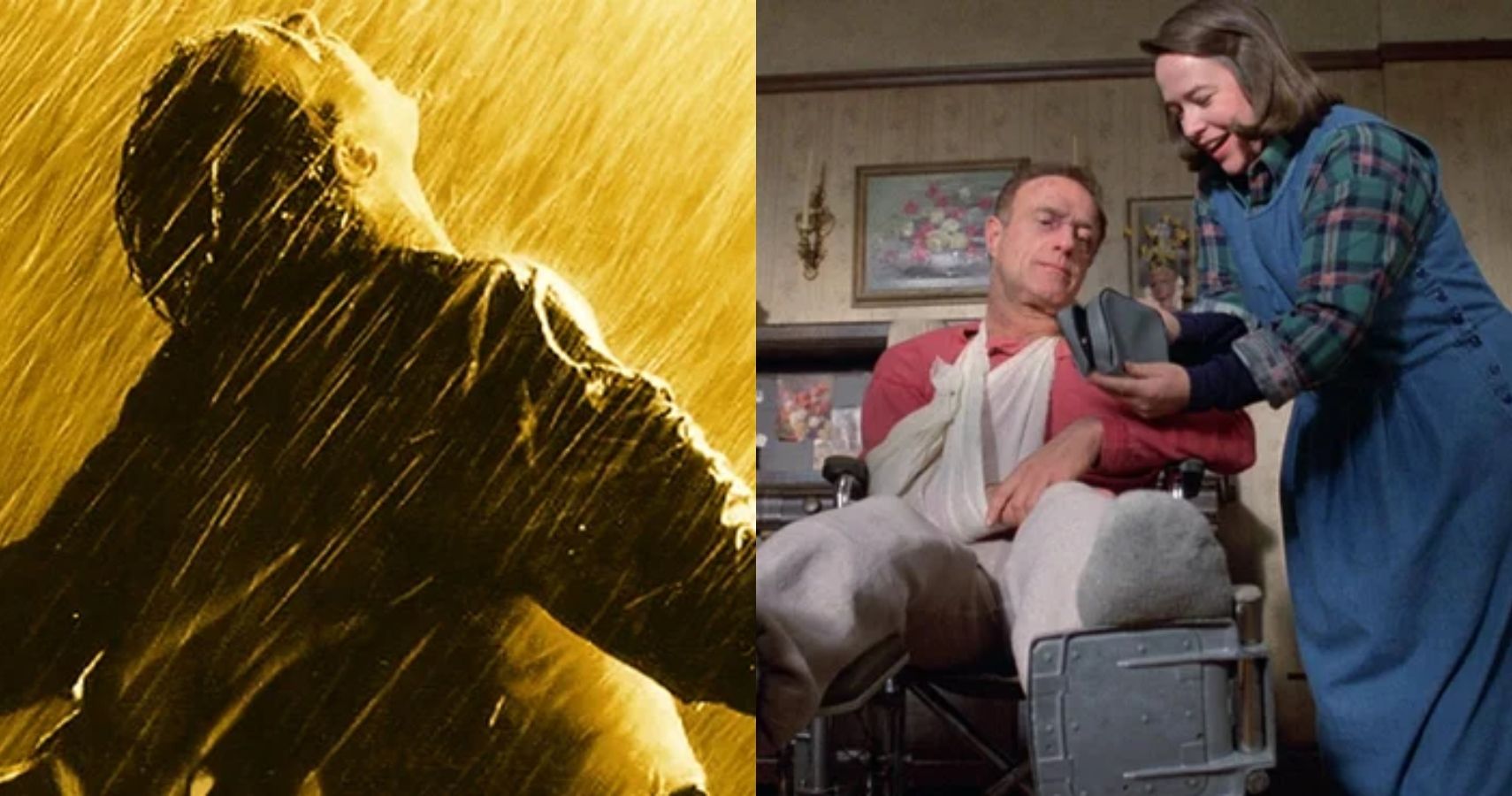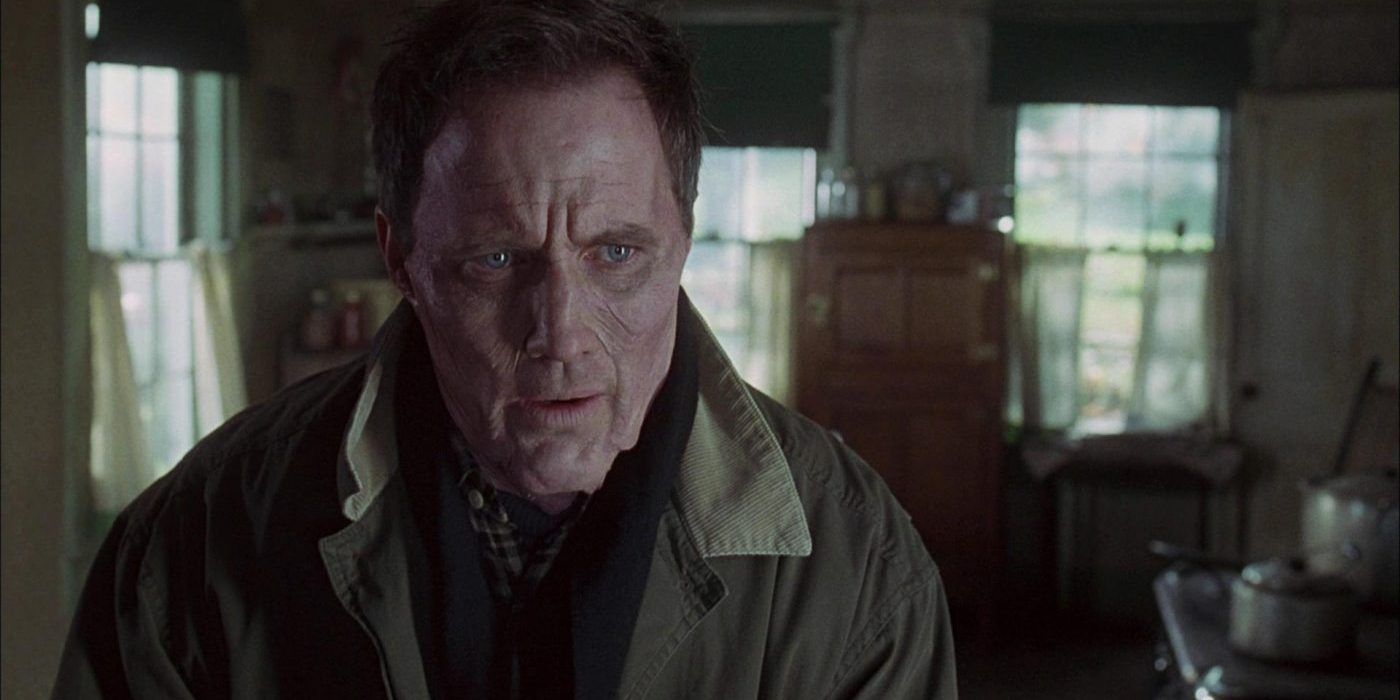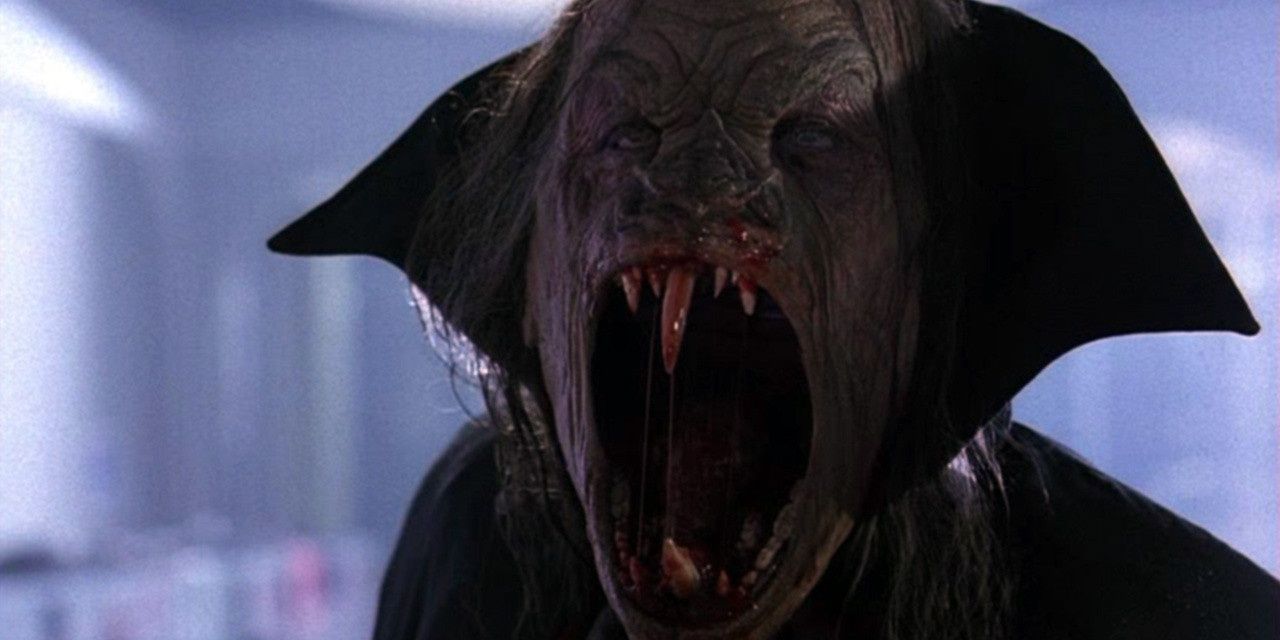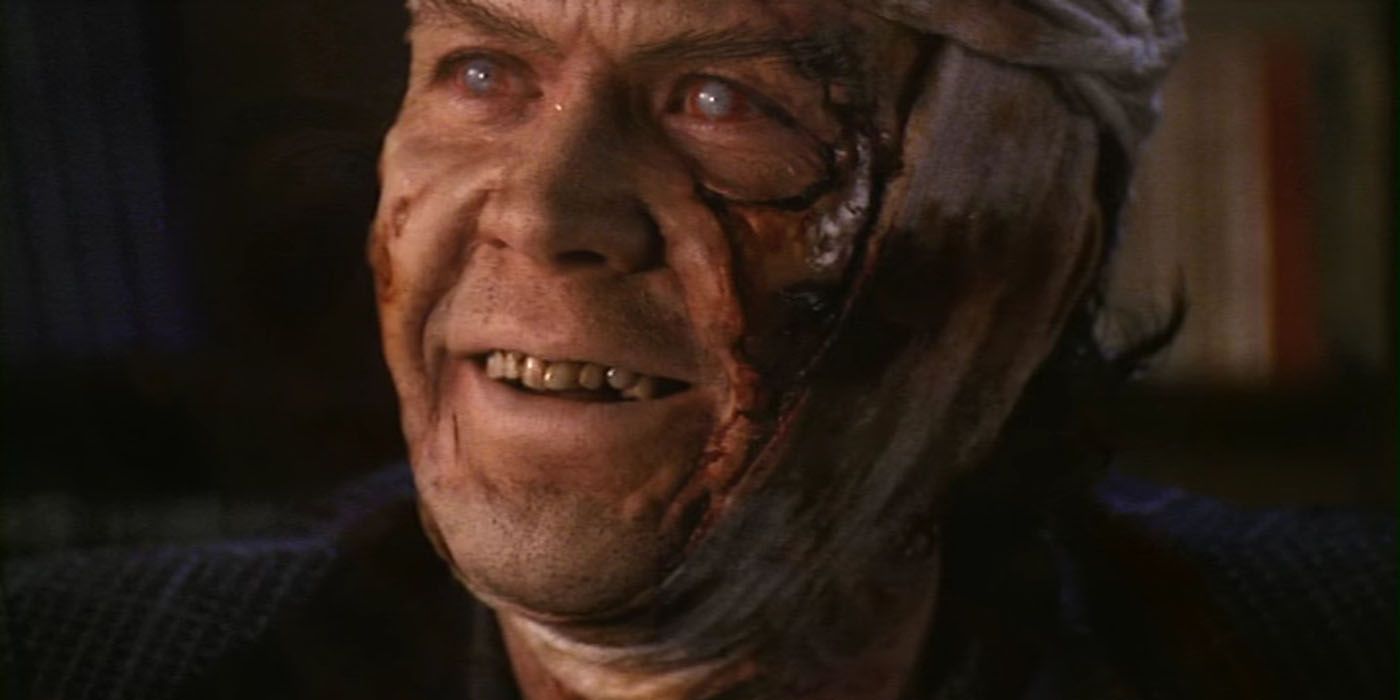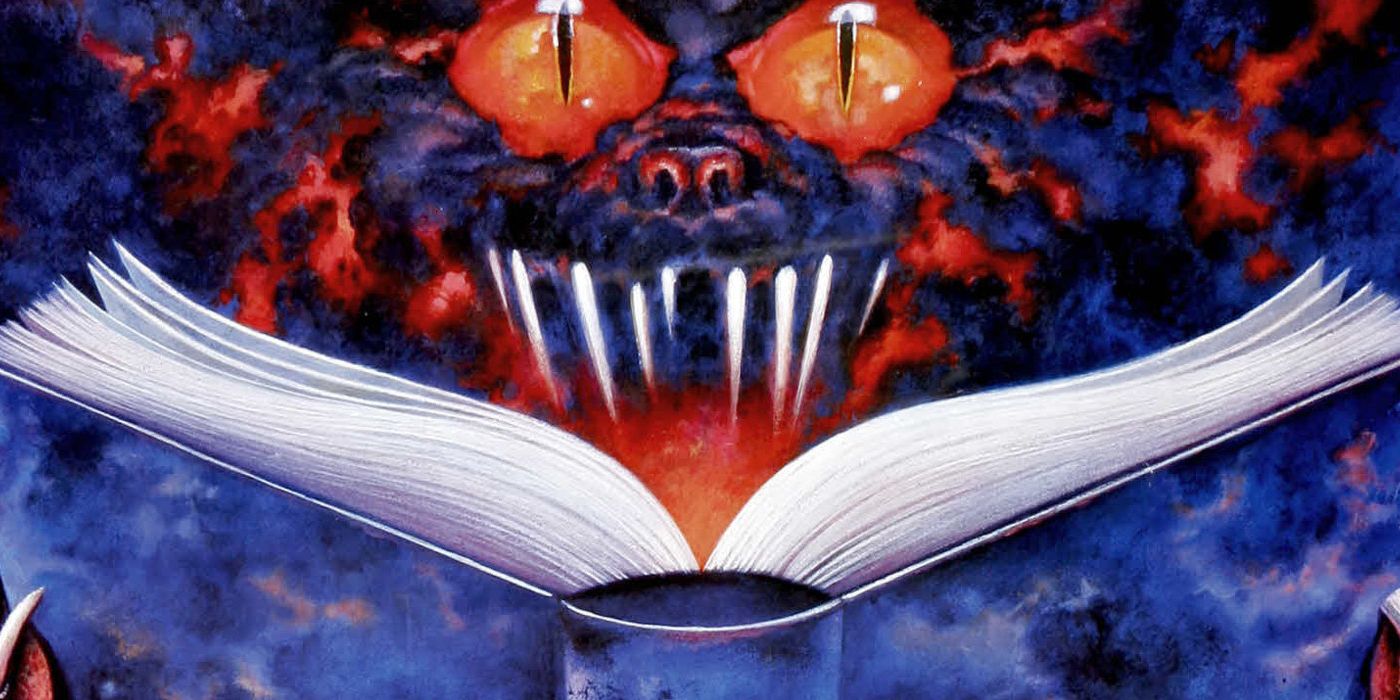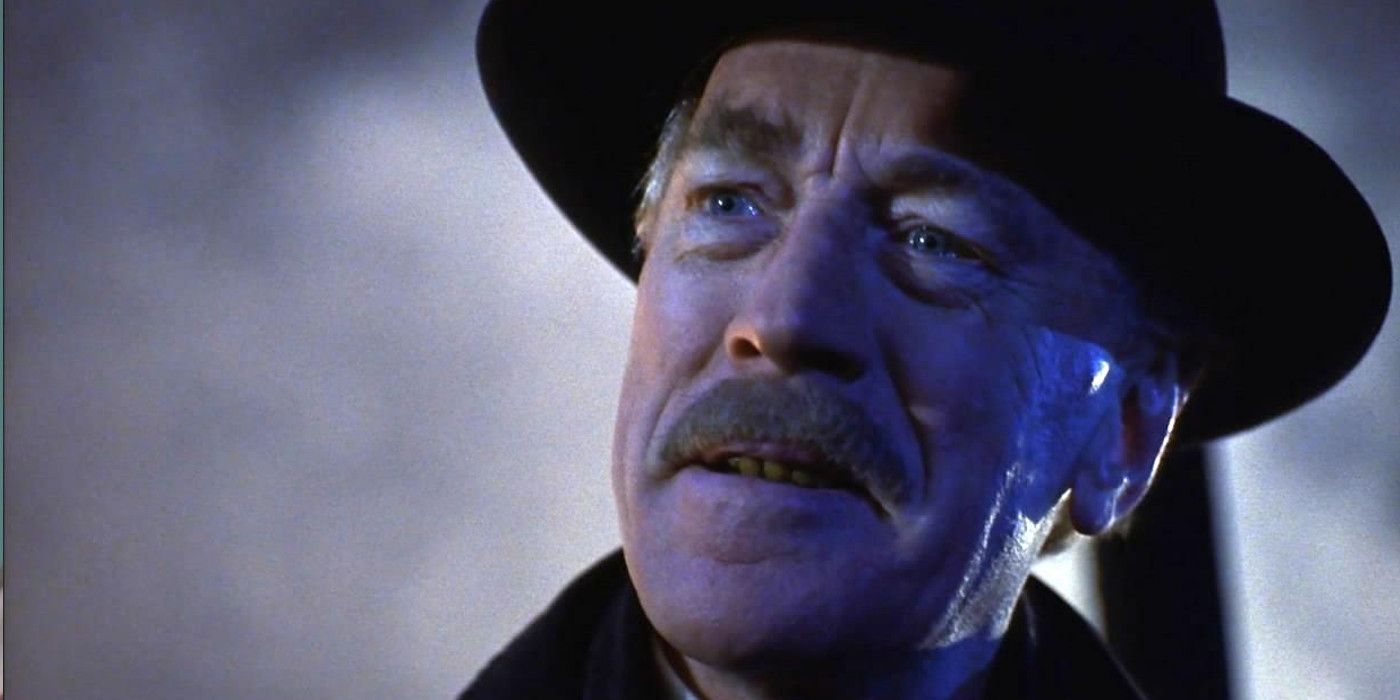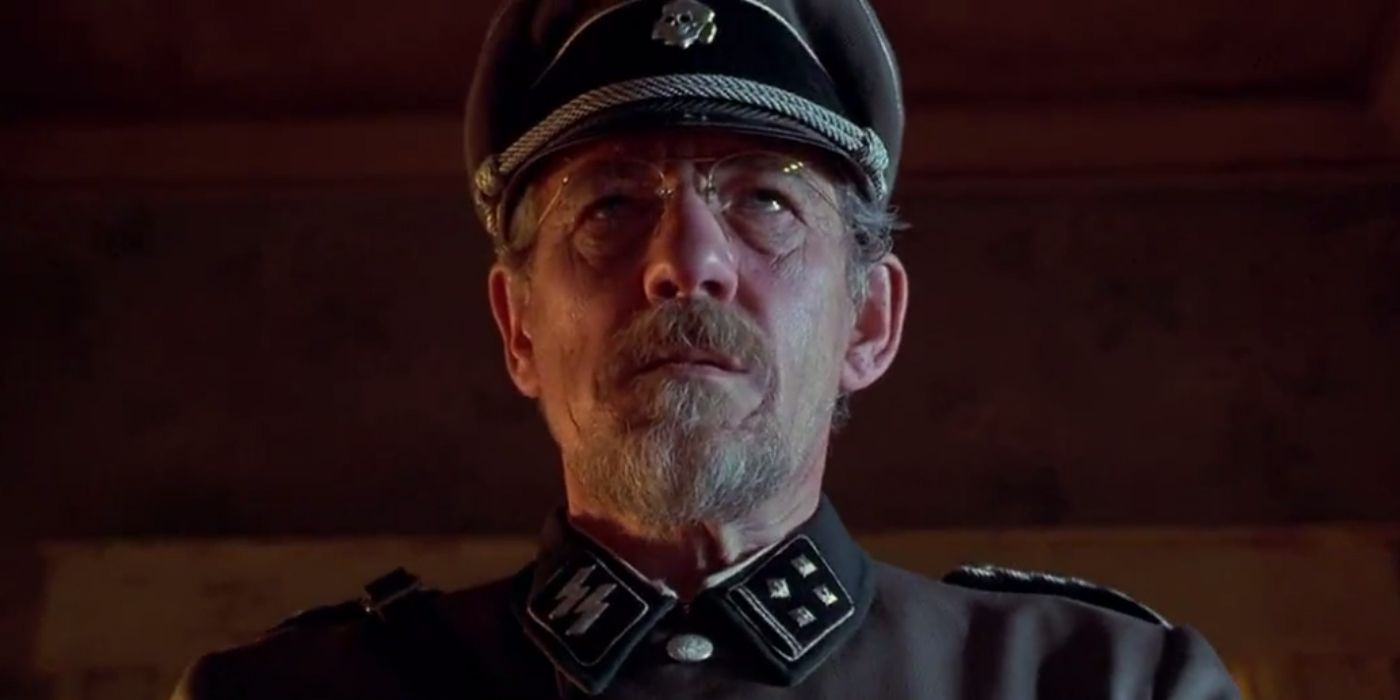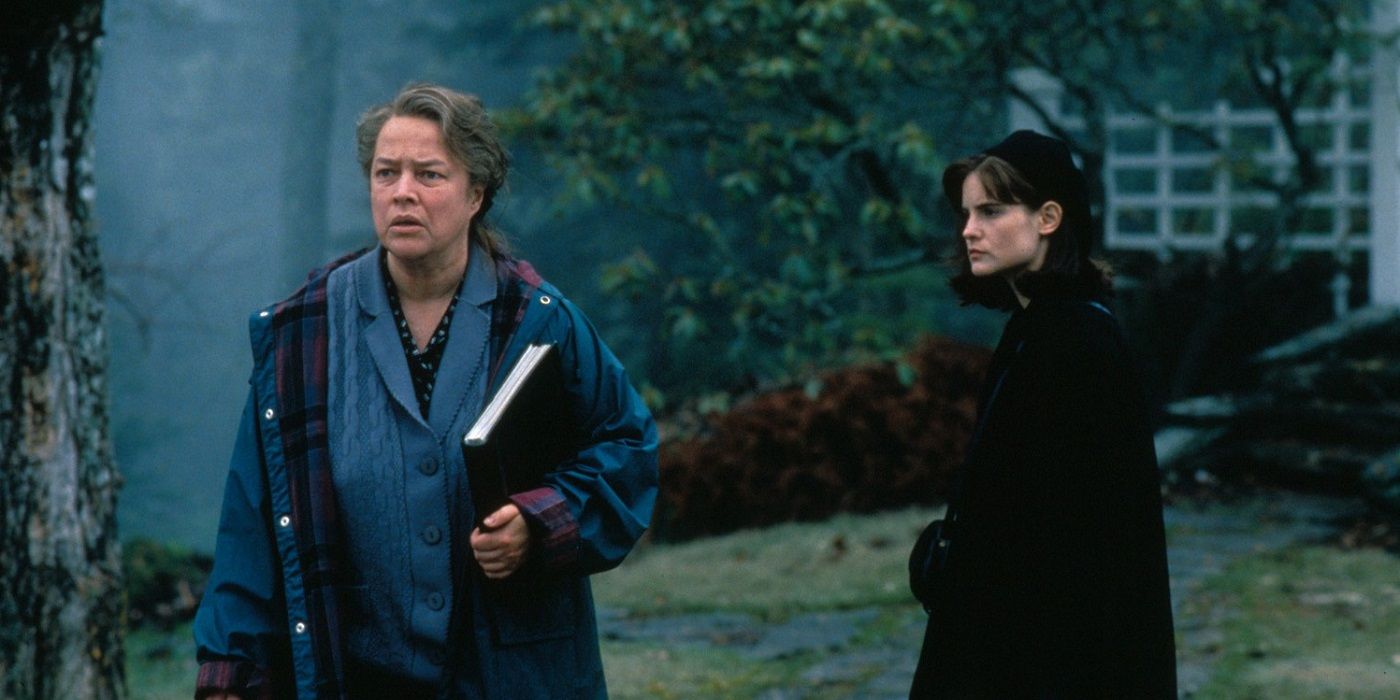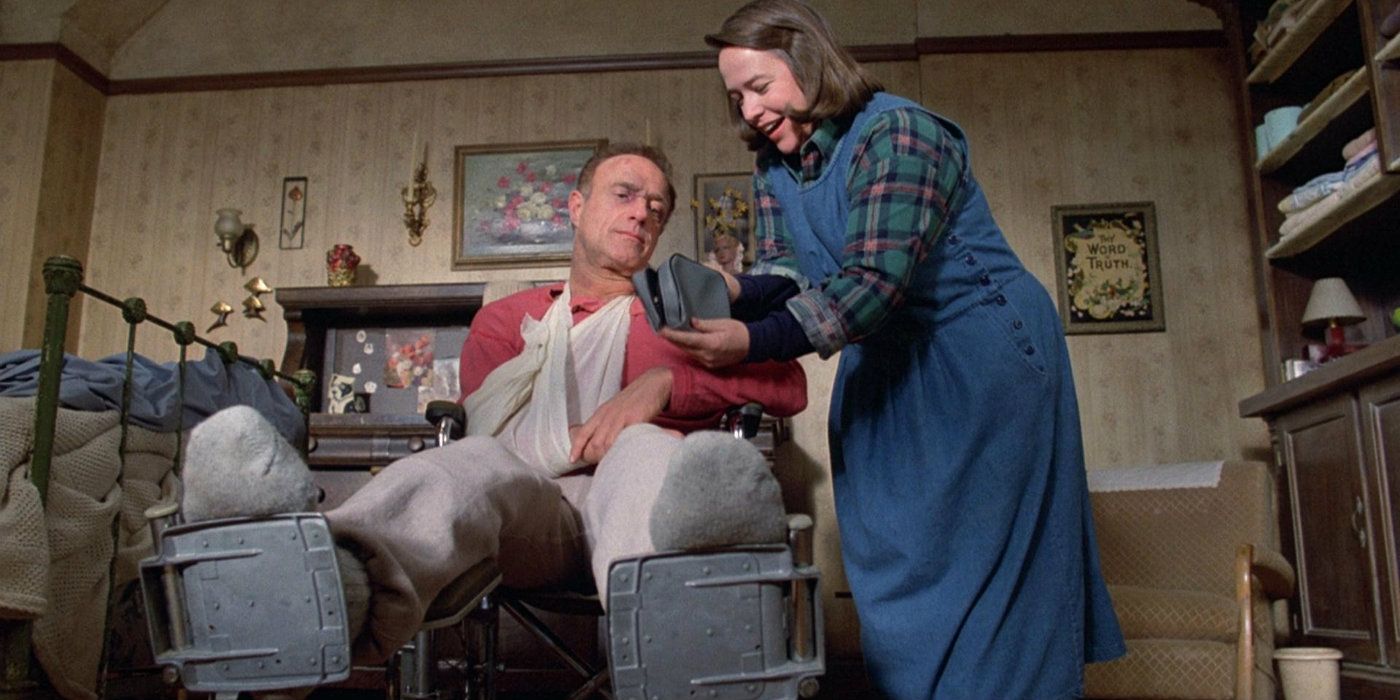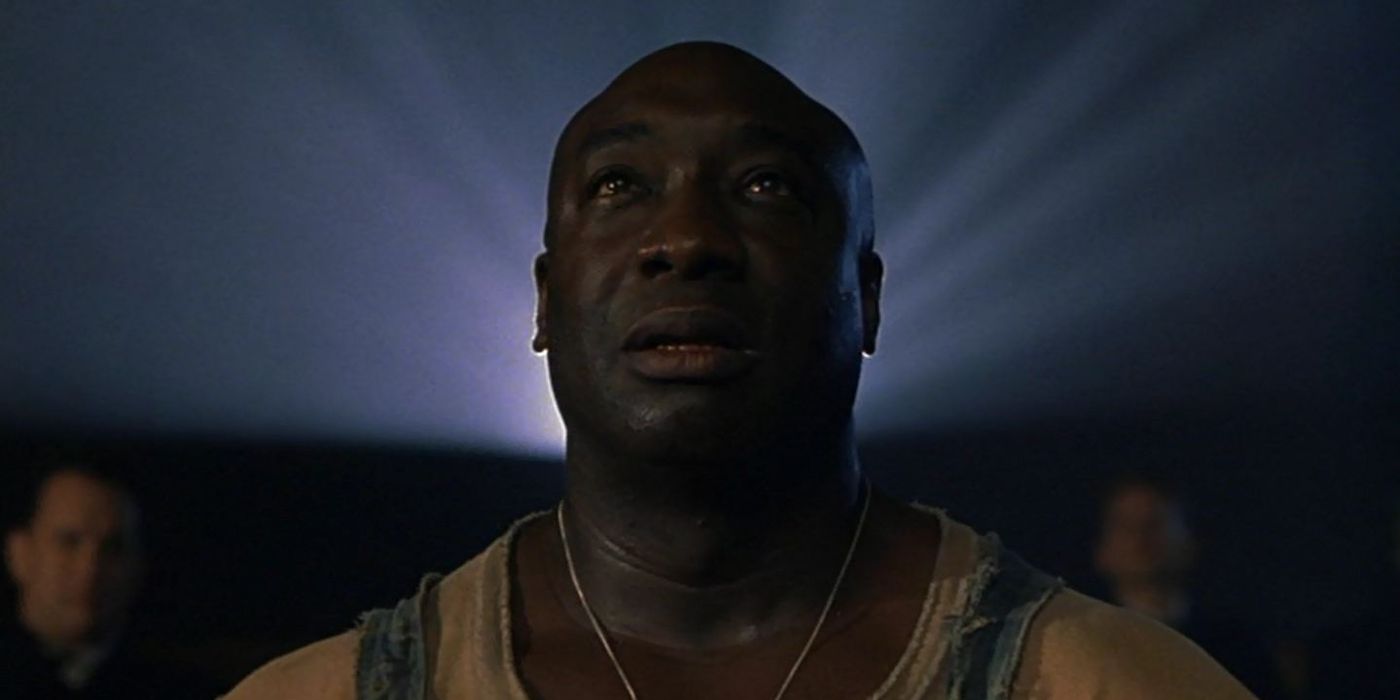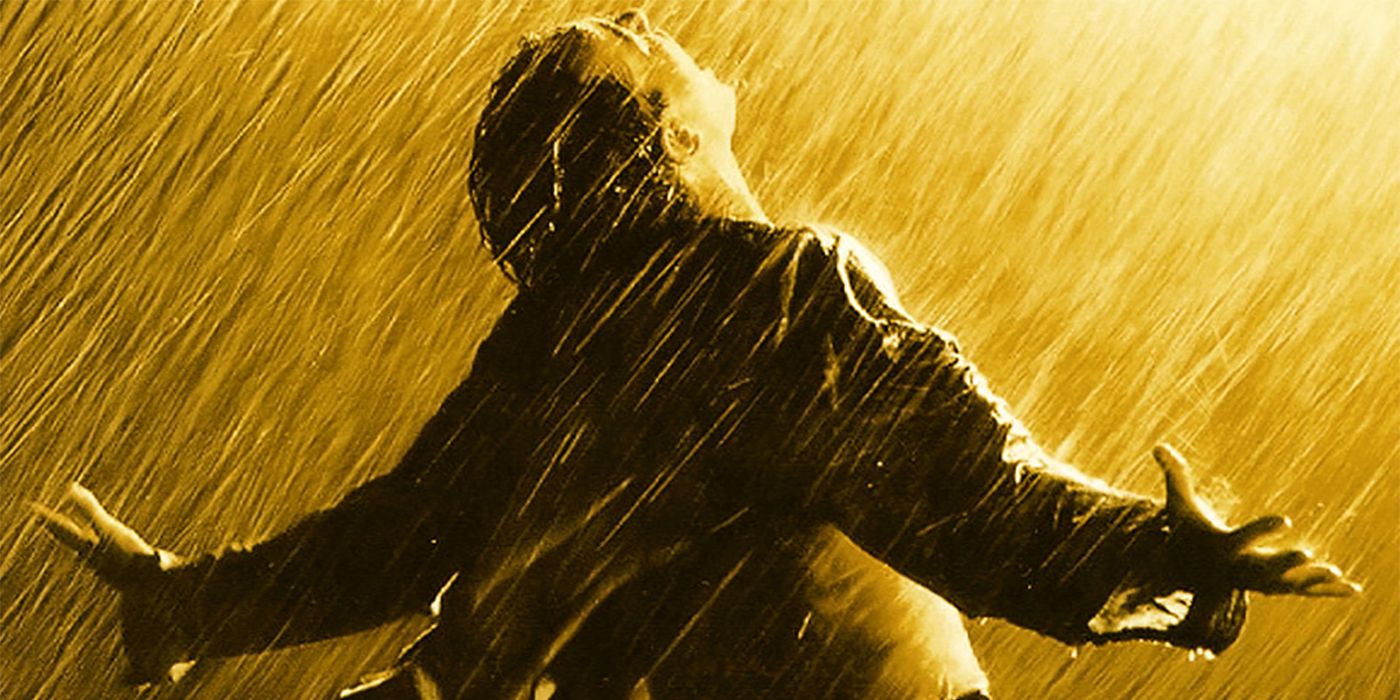Stephen King has built a stunning empire in horror, and with slick new adaptations, there’s been a welcome renaissance. His stories are often laden with fantasy, and many have been misused for the sheer gimmick of their premise. In the past, this has resulted in some fairly poor movies. Only with recent filmmakers grasping the poignancy of his characters, has this been avoided.
The 80’s and 90’s innately found a mixed bag with King, due to those artistic sensibilities. But the latter could not bear more dichotomy between its hits and misses. Only in the 90’s could The Shawshank Redemption share company with Thinner. So, here’s how the decade shaped up for IMDb users.
Thinner (1996) - 5.8
It’s a true shame to begin with such an abysmal adaptation, for what was already a somewhat flimsy premise. The idea of shrinking into nothingness could have been repurposed towards horror, but the final product is disappointing. Addressing weight issues is awkward, as is the regrettable trope of a mystical Gypsy. The film’s themes are all over the place, and the protagonist is utterly detestable.
As an attorney, he defends a criminal, then utilizes them for a personal vendetta. Worse, the actor’s performance simply isn’t up to par. By the time blood is mixed into a pie, it’s clear that this story indulges every silliness for which horror is so harshly judged.
The Night Flier (1997) - 6.0
King is no stranger to vampires, and Tobe Hooper’s adaptation of Salem’s Lot remains a cornerstone of classic horror. Luckily, this later film boasts Miguel Ferrer for its protagonist, well known for hits like Twin Peaks.
A naturally talented actor, he lifts the material, a flighty bit of fantasy that doesn’t quite achieve its full potential. Entertainment has been inundated with vampires for ages, and it can be difficult to derive fresh stories. Truthfully, this belonged as a solid short story. Even with a brisk runtime, it rather overstays its welcome, despite a nifty premise and decent gore.
The Dark Half (1993) - 6.0
Directed by George Romero himself, who really popularized zombies as we know them, even influencing creepy video games. So, this may be neat for horror buffs. But perhaps not so much for more casual viewers. The concept of an evil alter ego has been frequently used, so it’s more familiar territory with King’s stamp. The escalation of the murders and mania is actually rather decent, and it’s something of an underrated film.
Except for its bizarre, theatrical ending. Now, spoilers: the true identity of the alter ego is much too blatant a stand-in for the protagonist’s work. And perhaps, it was a touch too meta. The pacing definitely lags, but fortunately, some deft camerawork and decent performances make this a fun throwback.
Tales From The Darkside: The Movie (1990) - 6.3
The horror genre is a snug fit, regarding anthology stories, often benefiting from tightly woven stories. This is yet another film adaptation of many horror anthologies, that likewise doesn’t live up to the source material. Emphasizing the classic twist, the series’ episodes are almost interchangeable with its peers, but playful and brisk. So, despite a cast with some fun surprises of ample talent, the movie required stronger material.
Its framing device is a cliché fairy tale trope, and the special effects are unsatisfying overall. Anthologies run the risk of either winning or failing multiple times in one go, season or film. Unfortunately, this one leans towards the latter.
Needful Things (1993) - 6.3
The mere premise of this story is akin to many Twilight Zone episodes, wherein wishes often result in harsh consequences. So, it’s well-worn territory, and many of the film’s themes are likewise rendered somewhat dull. However, this movie features the likes of Max von Sydow and Ed Harris, who elevate every single scene they occupy.
Once again, it’s a middling King adaptation that suffers from the same problems as its source material. Even with a decent budget, certainly compared to other lesser adaptations, the story needs serious tweaking. It will frustrate both casual viewers and fans of the book alike.
Apt Pupil (1998) - 6.7
Bryan Singer followed up his instant classic, The Usual Suspects, with this lesser thriller. By sheer comparison, it was subject to preemptive judgment. The perpetually inviting skills of Ian McKellen—Magneto himself, coincidentally playing an ex-Nazi—is definitely crucial. The rest of the cast is also decent enough, and Singer’s direction has some clever maneuvers here and there.
But ultimately, the story suffers from some uneven pacing, occasional implausibility, and a weaker performance from the protagonist. It’s an atmospheric psychological thriller that essentially falls short of its own daring premise, which is braver than the film.
Dolores Claiborne (1995) - 7.4
King’s adaptations are often most effective when he disregards fantasy altogether. There is something inherently flawed in bringing fantasy to the big screen, be it lacking effects or tonal compromising. Also, grounded reality is far more accessible to more casual viewers.
Here, Kathy Bates returns for yet another dramatic hit, flaunting her trademark authenticity and range. She’s joined by a couple other stars, but undeniably carries the film throughout. The relationship between mother and daughter takes precedent, and the flashbacks don’t get out of hand. The film carefully balances a story that could otherwise become very convoluted.
Misery (1990) - 7.8
This is fan service in the most distilled King fashion one can imagine. At the same time, it’s a brilliantly paced, nuanced thriller that allows two great actors a sophisticated showcase. The winter setting is perfect for this stark, character-driven slow-burn. Although best known for its classic ‘hobbling’ scene, the film comprehensively invokes the genuine claustrophobia and fosters convincing drama.
Kathy Bates’ mania is a slow reveal, with meticulous escalation. Her compelling portrayal is an outstanding complement to James Caan’s everyman. The film allows so much time to breathe, it functions as a gripping play. Yet the finale is so cathartic, it defies any sense of exaggeration.
The Green Mile (1999) - 8.6
This is an extraordinary adaptation of an ambitious, thematically overwhelming story. What began as a series of six novels, is given an epic drama with a correspondingly long runtime. Clocking in at three hours, Frank Darabont strikes gold yet again after successfully directing The Shawshank Redemption.
Which is still the highest-rated movie of all time, on IMDb. With magical realism, upsetting violence, a murder mystery and conversations about ethics, it’s nothing short of a masterpiece. It’s also one of the purest Stephen King stories, blending nothing but his greatest strengths. The film may run long, but it maintains fidelity to the novel with smart, selective decisions.
The Shawshank Redemption (1994) - 9.3
There is hardly a word left to be uttered about this film, that does not already praise self-evident brilliance. Of course, some have found certain elements needlessly sentimental, perhaps pointing to the opera scene. But for most, the story’s poignancy is convincing enough and certainly moving. Once again set in a prison, this story instead focuses on broad thematic brushes.
However, it is so extensive and well-performed, ambitious and optimistic, it’s hard to deny its effects. It’s a lengthy film, but nothing feels superfluous. It also features a more reserved approach to violence, without losing its verity.

